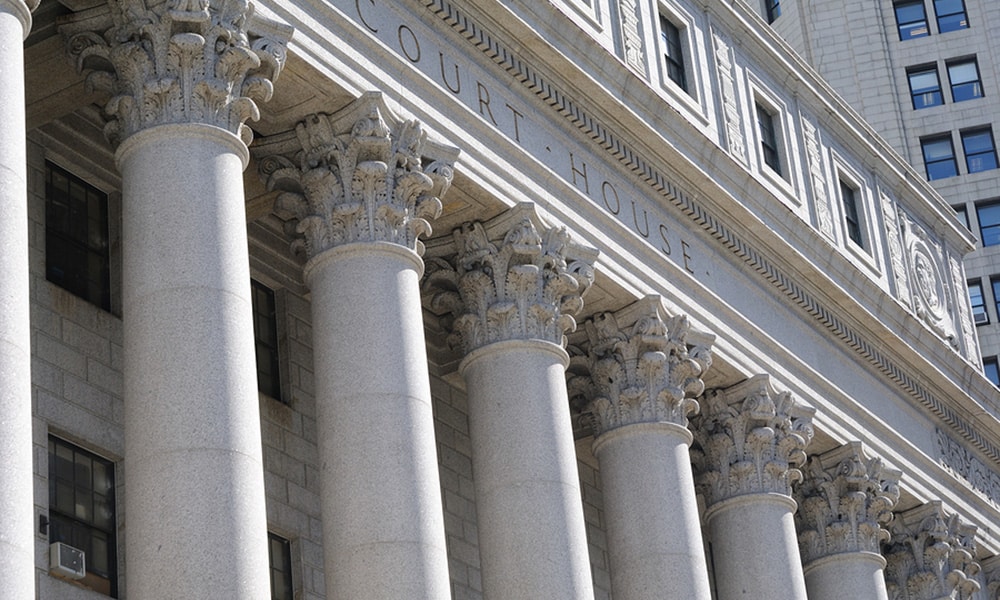Defacing public property is a crime punishable by law. It happens when a person willingly damages another person’s property without the other person’s permission.
Individuals who alter public property without permission face the risk of hefty penalties. These include fines, being ticketed, or being sent to jail. A skilled Denver criminal defense attorney can help you learn about the kind of case you have and your legal options.
What Types of Property Constitute Public Property?
Many structures and objects fall in the category of public property. Some examples include:
- Fences
- Banners
- Walls
- Buildings
- Sidewalks
- Street signs
- Billboards
Governments and municipalities spend a lot of money on graffiti removal on streets and public buildings. They also remedy the problem by pursuing criminal charges against those who commit these crimes.
What Criminal Acts Constitute Defacing Property
Criminal acts that constitute defacing property include:
- Knowingly engaging in conduct that damages another person’s property
- Damaging property by explosion or fire while acting recklessly, also known as arson
- Starting a fire knowingly on land belonging to another person
- Knowingly injuring a pet belonging to another person
- Causing damage to property to collect insurance
- Intentionally defacing another person’s property by spray-painting it
People that want to avoid facing criminal charges should obtain the appropriate permits and licenses before performing any work in public. Assuming that artwork that “improves” the property is allowed may land you in trouble for committing a crime.
What Are the Penalties for Violating Public Property Laws?
The penalties for defacing property depend on whether the crime is a felony or misdemeanor. The cost of repairing the resulting damage determines whether a crime is charged as a felony or misdemeanor. The following are the penalties for various types of defacing property crimes:
Penalties for Defacing or Removing Monuments, Landmarks, or Accessories
The law prohibits defacing landmarks or monuments to prevent changes or alterations to property boundaries. Any individual who cuts down a boundary tree or removes any legal boundary monument to the damage of any person commits a Class 2 misdemeanor.
Under Colorado law C.R.S. 18-4-508, a Class 2 misdemeanor attracts a penalty of 3 to 12 months in jail and a fine of up to $1,000. A Denver property crimes attorney can defend you to protect your rights and freedom.
Penalties for Defacing Property
The defacing property statute in Colorado protects most public and private property from defacing, destroying, damaging, or removing by individuals without proper permission. The statute covers public property, historical monuments, caves, and private property.
Defacing these properties includes using ink, painting, writing, drawing, and any structural damage caused by substances like acid. Tunnels, aqueducts, mines, and excavation sites are also subject to protection from defacing. Breaking doors, locks, or structures that enclose a cave is also a crime.
The offense is a Class 2 misdemeanor and attracts a penalty of a maximum of 12 months in jail and a fine of $1,000. It’s in the court’s discretion to impose an alternative penalty, depending on the circumstances of the offense. When faced with such charges, consult a property crimes lawyer in Denver for a more favorable case outcome.
Penalties for Defacing or Destruction of Written Instructions
Defacing or destroying written instruments evidencing a property right with the intention to defraud is a Class 1 misdemeanor under C.R.S. 18-4-507. A written instrument evidencing property ownership could be a title to a motor vehicle, a title to real property, or another formal document. These documents can be used to transfer ownership even if the holder doesn’t possess the property.
An individual that changes, crosses out language, erases sections, alters names, or defaces such an instrument with the intent to defraud commits a Class 1 misdemeanor. Such a crime attracts between 6 and 18 months of jail time and a fine of up to $5,000 under C.R.S. 18-4.507. You may have a lesser penalty if you let a property crimes attorney in Denver defend you in your case.
Penalties for Defacing Posted Notice
Public notices inform the public about business-related changes, government actions, or other required information. Examples of information on a public announcement could be a residential property on sale, a business about to get a liquor license, or a building that will be demolished.
The law stipulates that anyone who intentionally destroys, marks, or removes any posted notice authorized by law commits a Class 1 petty offense. Such offenses attract a maximum penalty of up to 6 months in jail and a maximum fine of $500.
What Are the Defenses to Criminal Property Damage Charges?
You can defend yourself in several ways when facing a charge of criminal damage to property crime. These include:
- A claim of right: If you can show that the property belongs to you or you have some valid right to it, you can avoid conviction for property destruction.
- Necessity: If you can show that circumstances demanded that you damage someone else’s property, you can avoid a conviction for the crime.
- Self-defense: If you damaged someone’s property while trying to defend yourself, a claim of self-defense is available to the charge.
It’s always possible to argue that someone else is responsible for your criminal actions. You may also defend yourself by saying that your act wasn’t intentional but only reckless or negligent. Consult with a Denver property crimes lawyer to argue out your case favorably.
Learn Your Legal Options Today from an Experienced Professional
If you have been charged with the crime of defacing property, you need to create a solid case to protect your rights, freedom, and future with the help of a property crimes lawyer in Denver. Talented artists may decorate cities with their art, but doing so on private property without permission constitutes a crime.
We can represent you to negotiate a lesser misdemeanor charge instead of a severe felony charge. Having a criminal record is never good, and we want to help you come out unscathed. Contact us today to explore your legal options.







